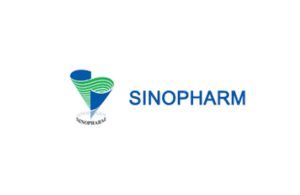 An article recently published in JAMA concluded that two inactivated COVID-19 vaccines from Sinopharm (OTCMKTS: SHTDY) were 72.8% and 78.1% effective, respectively, based on interim Phase 3 study results.
An article recently published in JAMA concluded that two inactivated COVID-19 vaccines from Sinopharm (OTCMKTS: SHTDY) were 72.8% and 78.1% effective, respectively, based on interim Phase 3 study results.
The lower figure refers to the protection from a COVID-19 vaccine based on two 5-µg doses based on the SARS-CoV-2 isolate WIV04 complete genome. The second vaccine in the study was based on two 4-µg vaccine doses developed with the HB02 strain of SARS-CoV-2. Some 13,459 received the WIV04-based vaccine, while 13,465 received the HBO2 version.
A placebo group including 13,465 participants received aluminum hydroxide, a common adjuvant.
In all, the study involved 40,380 participants. Most participants in the study were relatively young men.
Sinopharm recruited study participants in the United Arab Emirates, Egypt, Jordan and Bahrain. The study population consisted of adults at least 18 years of age who believed they had not contracted COVID-19 or MERS.
Participants received two intramuscular injections spaced 21 days apart.
Like other studies on COVID-19 vaccines, the primary endpoint for the trial was symptomatic COVID-19 14 days after administration of the second vaccine dose.
The secondary outcome for the study focused on efficacy against severe COVID-19.
There were two severe COVID-19 infections in the placebo group and none in the two vaccine groups.
While data suggest that inactivated vaccines are less effective than mRNA-based vaccines, they have distinct advantages. First, there is a substantial amount of data indicating that they are safe based on similar vaccines for hepatitis A, polio, and rabies. Second, they have straightforward storage requirements. They can be stored between 2 °C and 8 °C, making them suitable for low-income countries without broad access to ultracold freezers.
The World Health Organization has recently authorized one of the Sinopharm COVID-19 vaccines.